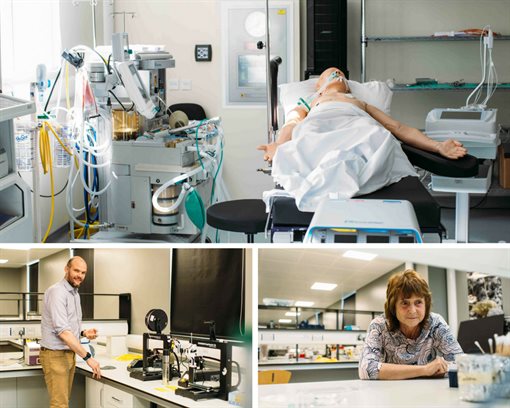Scientists at the University of Birmingham have worked alongside experts at the Surgical Reconstruction and Microbiology Research Centre to develop a new dressing that could heal burn scars.
Decorin
Professor Liam Grover, Director of the Healthcare Technologies Institute and Professor Ann Logan, who specialises in molecular neuroscience at the University of Birmingham, identified the dressing as a possible agent in anti-scarring dressings whilst looking at how to repair injured brain and spinal cord tissue. The dressing uses a synthetic version of the molecule called Decorin which occurs naturally in tiny amounts in the body. Decorin would allow the wound to be closed with normal tissue rather than scar tissue, bringing an end to disabling disfigurements caused by burns. If it is successful, it will be developed to be used in other tissues where scars can be problematic, such as in the eye or after brain surgery.
 Photographs by James Allen
Photographs by James Allen
The Scar Free Foundation Centre for Conflict Wound Research
The development and first in-man trial of the new anti-scarring dressing is one of the first research projects within the Scar Free Foundation Centre for Conflict Wound Research. The Centre, based at the University of Birmingham, will bring together uniformed and civilian scientists and clinicians to investigate how the body heals and protects itself following the types of trauma common to conflicts (chemical, burn, and blast injury), and to spearhead the development of new treatments, from the point of injury through to rehabilitation.
The anti-scar dressing research was featured on ITV news: http://www.itv.com/news/central/2015-10-08/the-new-dressing-which-could-heal-burns-scars/